I come into the kitchen after an early morning dog walk. It’s good to start the day with a stomp through the sleeping the still-sleeping Dorset village I live in, along the uneven cart track and out across the empty fields with our golden retriever, Margot.
Back at home, I’m confronted by the chaos of a family getting ready for school and work. Packed lunches are half-made, the radio is blaring bad news, a ball of bread dough has been abandoned, the trip hazard of a mop and bucket of dirty water sits in the middle of the room and the contents of a cupboard are teetering precariously on the worktop. My husband, Steve, is in the middle of it all, flour streaked down his jumper, wearing the wrong glasses because he can’t find the right ones. He’s often searching for important things he put down and can’t for the life of him remember where, such as a tax bill or his wallet. Maybe they’re with the car keys – which are still missing.
I used to hate these sorts of mornings; they made me frustrated and grumpy, which would lead to an argument. I railed against the many tasks Steve started and broke off from halfway through. Why take on so much and then abandon them? How was it possible to constantly lose stuff in a small cottage? Why couldn’t he just get out of bed, eat a bowl of cereal and go to work? It felt like I was being tested every day in a thousand different ways. Steve was confused by my reaction because he couldn’t see the things that were left unfinished. His mind was racing ahead to the next part of the morning, leaving disorder in his wake.
We’d met 22 years ago. Or at least, we met up again then. We’d known each other in our dim and distant pasts and lost touch for many years while he got married and I became a darker version of Bridget Jones. It was an accidental reconnection, but it came at exactly the right time for us both. I knew Steve was attempting to zap a few mental health demons, but I also knew his history and how the loss of his father when he was nine, then his sister when he was 21, had pulled the rug out from under him. Anyone who had been through these experiences would have tough days.
Our relationship began as a whirlwind. Steve was clever, funny and curious, and when he focused on something – in this case, me – he threw all his passion and commitment at it. There were two Steves: the one powered by love and excitement and the other one, who couldn’t lift his head off the pillow in the morning. I didn’t really want either of those; I wanted someone I could rely on. As an actors’ agent in a big London agency, I was used to working with complicated, brilliant people, but they were my clients – I didn’t want to come home to it, too. The good outweighed the bad, though, and we built a strong relationship that led to starting a family. I was 34 when our first child was born, and I went straight back to work because it was in the days when maternity leave was vague. Steve was retraining, so he willingly stepped into the role of main carer, and I continued as breadwinner for a couple of years.
We were both good at our chosen roles, until I realised I wasn’t being the mother I wanted to be – or any sort of mother, really – and Steve was keen to put his new architectural qualifications into practice. We left London, and everything we knew and loved, and moved to Dorset, where we had two more children and found a better balance in our work lives; both of us shared the responsibility to earn money, keep our careers afloat and be hands-on parents. These years were a sunny rural montage of blackberry picking, beach picnics and cake baking.
Throughout this time, Steve would be pottering along happily and then depression, like an insistent wave, would take him from us for a while. Over the years, he tried every sort of therapy, culminating in EMDR treatment for PTSD several years ago. This was the closest he came to success, but it didn’t touch his mood regulation, his debilitating distraction or his self-loathing. After all the therapy, this remained, and it haunted him.
It feels selfish to talk about myself against the backdrop of this, but his temperament was eating away at mine. I spent 20 years thinking I could fix things until finally, one bleak early January day after a particularly tough Christmas, I realised I couldn’t, and I didn’t want to risk being submerged along with him.
In a raw, emotional conversation, we both stared the future in the face and discussed divorce. I went from bleating, “What about me?” to thinking, “He might not make it through this.” Steve was exhausted by himself. He’d spent so many years searching for a safe destination, but at each turn in the road, he was just faced with more road. He was stuck in a hopeless hinterland and considering his options – one of which was not to be here any more. Now was not the time to break up our marriage, but we could both see this inevitability on the horizon. It was our friend Thea who first mentioned the possibility of ADHD – and it opened the door to a whole new world. Steve took the idea to the GP, only to find out that the NHS waiting list for diagnosis was hefty, so we borrowed some money and contacted a private psychiatrist.
After much paperwork and an appointment of several hours, Steve was diagnosed with ADHD at the grand age of 55. The confirmation of neurodivergence was an utter relief and we couldn’t believe we hadn’t considered it before. Everything began to make sense, spooling right back to the early days of our relationship. Finally, there was an answer, in the form of medication. It was a big, positive step forward, as the drugs boosted his focus, helped his mood and kept him on track at work. There were also downsides as Steve adjusted to them: they dulled his appetite, muddled his sleep patterns and caused a facial tic. More than that, he was still unsettled; there was something he couldn’t quite put his finger on.
Steve spoke to his GP about a shared care agreement, which meant he could be prescribed the ADHD medication on the NHS. The caveat was that he had to go through the diagnostic process again, and it was then, with another psychiatrist, that we got a full understanding of the situation. After filling in a stack of forms and an in-depth assessment, it was declared that Steve was also autistic, or had ASD (autism spectrum disorder) in new money. The double whammy sent him spiralling into a familiar oblivion, as there’s no magic pill for ASD; it’s about acceptance, coping mechanisms and family support.
Our marriage, which had teetered on the edge many times, was pulled back from the brink by this revelation. It was a lightbulb moment for me, even though it took a while for Steve to come to terms with it; it explained so much and took the heat of anger out of many situations.
Coping with ADHD and ASD is a feat in itself because they can demand different things and the internal tussle can be huge. Steve will be exuberant, bouncing around with impulsivity, which can make him the best (albeit unpredictable) company. Yet he can also feel socially uncomfortable, sometimes struggles to regulate his emotions and gets stuck in the need to info-dump. He has sensory issues around certain fabrics, sticky food and loud music. He can overcomplicate things, will take a while to process thoughts and feelings, is forgetful and easily distracted.
Yet while he can be immobilised in the face of small, everyday annoyances, he comes alive when he’s confronted with a big crisis and it kick-starts an otherwise hidden ability to react quickly and problem-solve. Go figure.
So many things make a great deal of sense now that Steve has a diagnosis. I’ve read a lot more about neurodivergence than he has, and I’ve even written a book, The Honesty Box, about our year of discovery. While there are many fantastic publications focused on being neurodivergent, I couldn’t find a book that spoke directly to me about my own part in this.
It’s still early days, but we’re beginning to look further ahead and make the sort of plans you’d expect from people who have been together a long time, such as booking a holiday together and discussing work we need to do in the house. As our children have grown up, we’ve talked more openly with them and they show compassion and understanding around Steve’s diagnosis, which reinforces how proud I am of them.
It doesn’t stop the occasional frustrations, but it means we can each step back, take a deep breath and be honest. Steve is one of the bravest people I know. His biggest battle has been in his own head, without witness or relief, and I can’t imagine the strength it takes to overcome this, as well as the courage he’s shown in encouraging me to publicly share our personal life. If our story can help others in this situation, then it eases the weight we carry, too.
We’re still together, though neither of us is sure how. This isn’t a fairy tale or a Hollywood movie, but it is a happy ending – or at least, an ending of the part of our lives before diagnosis. Now we have a clarity that comes with knowledge, and that’s been life-changing. We’re both learning a new way of being, forged from the love and respect we’ve always had for each other. Whatever happens next, I doubt that will be extinguished. We move forward with hope.
The Honesty Box (Bloomsbury) by Lucy Brazier is out now


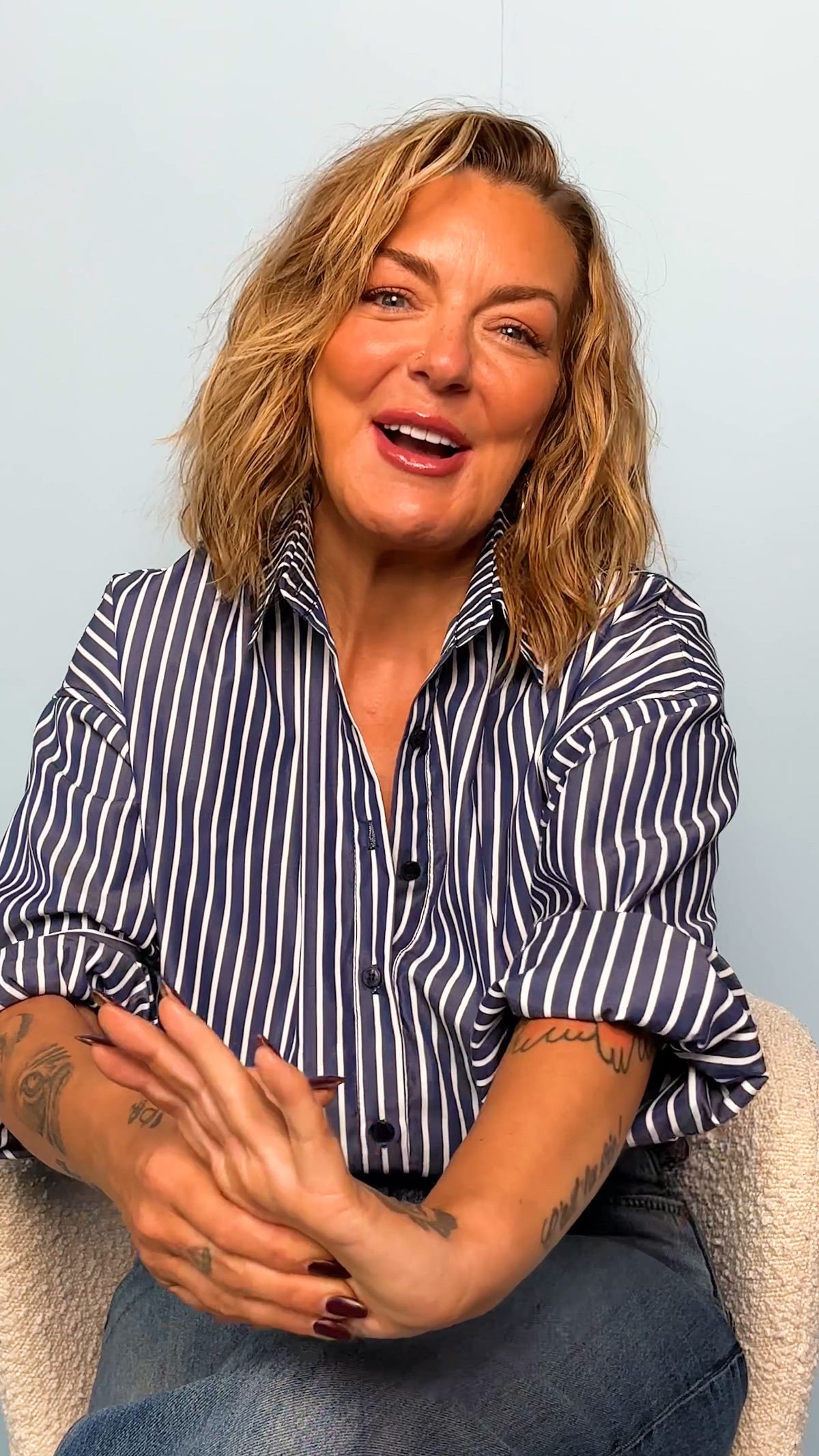


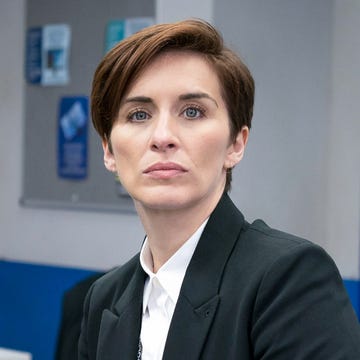

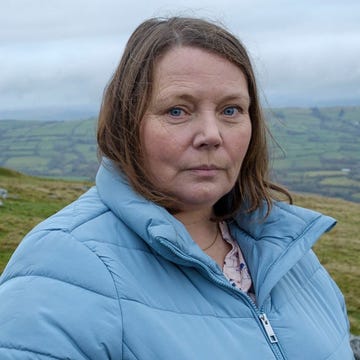

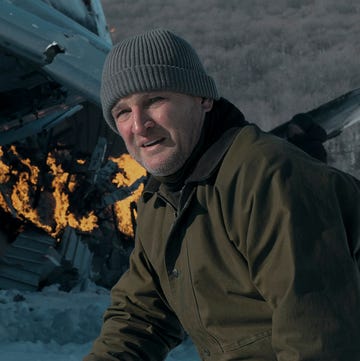

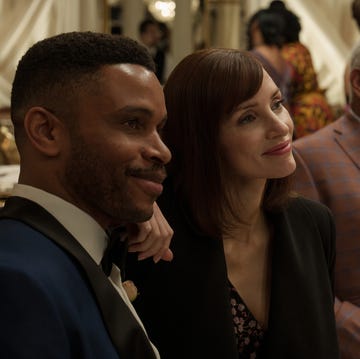
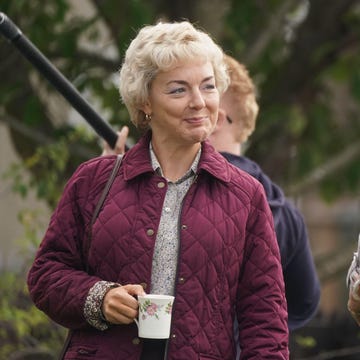

![©ITV from monumental television frauds sr1pictured: jodie whittaker as sam suranne jones as bert this photograph is (c) itv plc/ monumental television and can only be reproduced for editorial purposes directly in connection with the programme or event mentioned above, or itv plc. this photograph must not be manipulated [excluding basic cropping] in a manner which alters the visual appearance of the person photographed deemed detrimental or inappropriate by itv plc picture desk. this photograph must not be syndicated to any other company, publication or website, or permanently archived, without the express written permission of itv picture desk. full terms and conditions are available on the website www.itv.com/presscentre/itvpictures/termsfor further information please contact:michael.taiwo1@itv.com](https://hips.hearstapps.com/hmg-prod/images/frauds-sr1-first-look-03-6891d81c2d536.jpg?crop=0.428xw:0.643xh;0.0641xw,0.116xh&resize=360:*)